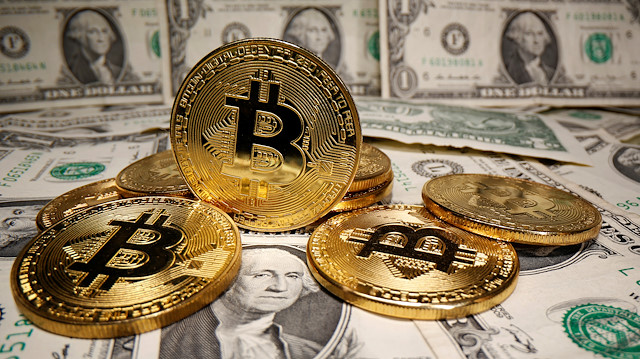
The dollar edged higher on Wednesday as worries about the U.S. response to China's proposed security law and renewed protests in Hong Kong supported safe-haven demand for the greenback.
The yuan slipped to its lowest in nearly nine months due to concern about increased tension in Hong Kong and a seasonal rise in Chinese corporate demand for dollars.
The euro eased slightly ahead of details from the European Commission of a financial rescue fund for the bloc later on Wednesday.
Financial markets have been caught in a tug-of-war between optimism and pessimism about the global outlook.
Some investors are betting on a resumption of business activity following the crippling coronavirus pandemic that brought the global economy to a standstill, but others worry the threat of U.S. sanctions against China for its treatment of Hong Kong could easily worsen risk sentiment yet again.
"We are in a broad risk-on trend, but the only thing that can change this is the U.S.-China relationship," said Junichi Ishikawa, senior FX strategist at IG Securities in Tokyo.
"More problems between these two countries would slow the dollar's recent decline and potentially lead to dollar buying as a safe haven."
The dollar edged up to $1.2320 against the pound on Wednesday, pulling away from its lowest level in two weeks.
The dollar rose to $1.0958 per euro, also pulling away from a one-week low.
It bought 0.9669 Swiss franc, following a 0.6% loss in the previous session.
The Australian dollar fell to $0.6642, while the New Zealand dollar eased to $0.6195 as worries about U.S.-China tensions hurt demand for riskier assets.
The dollar remained locked in a narrow range at 107.53 yen , but the yen rose against the euro and the antipodean currencies on increased safe-haven demand.
Many of the places that were hardest hit by the coronavirus pandemic are now allowing more businesses to resume normal operations, leading to an unwinding of safe-haven bets on Tuesday.
However, the move faded on Wednesday as Asian stocks and U.S. Treasury yields fell, showing risk aversion remains.
U.S. President Donald Trump said on Tuesday the United States will announce before the end of the week its response to China's planned security bill for Hong Kong.
Trump's administration is considering sanctions on Chinese officials, Bloomberg News reported.
Onshore, the yuan fell to 7.1595 per dollar, the lowest since September 2019. Chinese companies listed in Hong Kong bought dollars to make dividend payments to their overseas investors, which exacerbated the yuan's decline.
"We are approaching half-year end, the traditional dividend payment season. Normally such conversion should kick in later," said a trader at a Chinese bank in Shanghai.
"Yuan depreciation expectations were up again. Some companies were afraid the yuan could fall further, so they started to load up on dollars now."
Beijing has expanded the scope of the draft national security legislation to include organisations as well as individuals, media reported on Wednesday.
The United States and China have repeatedly clashed over trade policy, advanced technology, and China's response to the coronavirus, which originated in the central province of Hubei late last year.
Another row between the world's two superpowers could prompt a return to risk-off trades that favour dollar gains, declining equities and rising bond prices.
The European Commission is to present its own proposal for an economic recovery fund later on Wednesday, which could set the tone for the euro.
France and Germany have proposed a 500 billion euro coronavirus recovery fund that would issue grants, but Austria, Sweden, Denmark, and the Netherlands have opposed this plan, calling instead for a loans-based approach.














